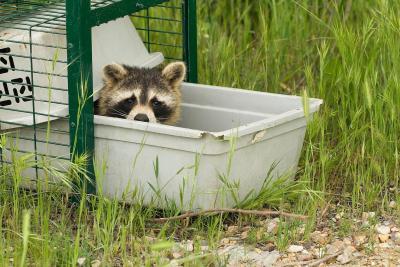Invasive Raccoons Threaten Europe

Get the world’s most fascinating discoveries delivered straight to your inbox.
You are now subscribed
Your newsletter sign-up was successful
Want to add more newsletters?

Delivered Daily
Daily Newsletter
Sign up for the latest discoveries, groundbreaking research and fascinating breakthroughs that impact you and the wider world direct to your inbox.

Once a week
Life's Little Mysteries
Feed your curiosity with an exclusive mystery every week, solved with science and delivered direct to your inbox before it's seen anywhere else.

Once a week
How It Works
Sign up to our free science & technology newsletter for your weekly fix of fascinating articles, quick quizzes, amazing images, and more

Delivered daily
Space.com Newsletter
Breaking space news, the latest updates on rocket launches, skywatching events and more!

Once a month
Watch This Space
Sign up to our monthly entertainment newsletter to keep up with all our coverage of the latest sci-fi and space movies, tv shows, games and books.

Once a week
Night Sky This Week
Discover this week's must-see night sky events, moon phases, and stunning astrophotos. Sign up for our skywatching newsletter and explore the universe with us!
Join the club
Get full access to premium articles, exclusive features and a growing list of member rewards.
Raccoons, the scourge of suburbs across North America, are now wreaking havoc overseas.
The furry creatures were introduced to Europe as exotic pets and have exploded in population since the 1970s. Now considered an invasive species, the raccoon threatens to sweep the continent with infectious and parasitic diseases like rabies, researchers warn.
"Due to its rapid expansion and the long list of illnesses that it may carry, it poses a health risk that we must bear in mind," researcher Beatriz Beltrán-Beck, said in a statement from the Spanish Foundation for Science and Technology (FECYT). Beltrán-Beck led a study on the raccoon invasion, which was published in the European Journal of Wildlife Research.
Rabies has been eliminated in most of Western Europe but researchers like Beltrán-Beck warn that raccoons could spread the deadly disease in eastern parts of the continent. Over the last several years, 142 cases of rabies in raccoons have been reported in Europe, mostly in Ukraine, Estonia, Germany and Lithuania, according to FECYT.
Raccoons sometimes host the nematode Baylisascaris procyonis, which, in humans, can cause an infection that doesn't become apparent until the worm's larvae move into a victim's eyes or central nervous system, causing blindness, neurological damage or death. There have been few cases of the illness reported in humans, but researchers with FECYT said it is emerging and on the rise in Europe.
Part of the problem might be that European countries, like Spain, do not control the trade of raccoons, which are often bought as pets and then released into the wild when they reach adulthood and become aggressive, Beltrán-Beck said. There also is a lack of knowledge about the distribution and population density of the raccoon in Europe, she added in the statement.
Follow LiveScience on Twitter @livescience. We're also on Facebook & Google+.
Get the world’s most fascinating discoveries delivered straight to your inbox.
 Live Science Plus
Live Science Plus











